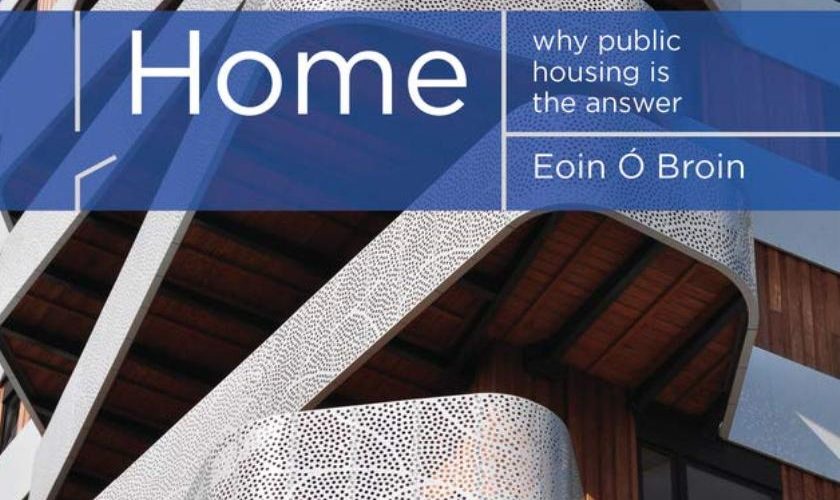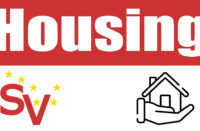Eoin Ó Broin, Home: Why Public Housing Is the Answer (Dublin: Merrion Press, 2020).
Much like its author, Sinn Féin’s spokesperson on housing, Home is a very nice and pleasant book. However, given the context of an ever-increasing homelessness crisis, it falls short of providing a truly transformative solution to the housing and homelessness crises.
While it is well written and researched, its weakness is its conclusions, as they do not seem to come from a thorough understanding of the capitalist system and the realities of housing policy in a capitalist state.
The treatment of housing policy historically does not provide for much disagreement. Ó Broin contends that the new Free State embarked on more or less the same type of housing policy as had existed under British rule, favouring home ownership rather than any state-led investment in public housing. It is explained, correctly, that it was the inflexibility on this policy, and not some genetic trait of the Irish people to favour home ownership, that explains the lack of public housing in comparison with other countries. We might add that this was an inevitable consequence of the counter-revolution of 1922–23.
The author admits that he lacks the ability to include an analysis of the housing situation in the north of Ireland, and as a result the book deals only with the twenty-six counties, and unfortunately it shows. The preference in the book for “public housing” with the involvement of so-called approved housing bodies (AHBs), which include the likes of NGOs and charities, doesn’t take into account the realities of how that policy has been used by the British government in the north of Ireland, where the AHBs have been different only in form, but not in content, from any landlord, requiring a profit to run and needing capital to make investments, not to mention not having any accountability to the tenants themselves.
Ó Broin favours a system that can only be described as eclectic, trying to bring together all the best parts of everything in a neat policy. Class struggle is rarely, if ever, that simple, unfortunately. The proposal to build upwards of 100,000 homes might go down well as an election slogan, but as a demand that creates a housing policy that would eradicate the scourge of homelessness for ever it falls short, for the simple reason that it is simply a tweaking of the “fiscal space” afforded to any capitalist government. It is still playing within the confines set by neo-liberalism.
The book does not take into account the massive vacant housing stock, well above 200,000 vacant properties, which could be used to house not only the homeless but all those on the housing waiting-lists. Of course in a capitalist system this would not be allowed to happen without being a result of intense political struggle.
Building homes, even if they are publicly owned, in an effort to manipulate the logic of supply and demand can only provide a short-term fix, not a long-term solution. People do not need homes in five years’ time or however long it takes to build: they need them now.
A long-term solution can only be the complete removing of the private sector, the landlords and developers, from housing provision. While Ó Broin favours training courses for landlords, and efforts by the state to put manners on the worst of them, this simply will not work in reality. The 20 per cent of landlords that are large transnational corporations, such as I-RES REIT, the largest landlord in the state, are the monopoly capitalists in the housing industry. They are the ones who make the policy. The fact that most apartments being built now are being sold to large groups such as the American investment group Heitman, which then leases them for rent, only shows that this is a system that is working very well.
Ó Broin’s belief in the cost-rental model is another cause for concern, given the reality of the St Michael’s Estate project, where rents were practically the same, as the CPI said at the time. This type of “alternative” only works to let the state and employers off the hook when it comes to such issues as low pay, with workers and their families still bearing the burden of capitalism’s problems.
In a system of universal public housing, financed by progressive rents linked to income, housing would be a service provided by society, not by the private sector. As much as this would conflict with the EU, that’s not necessarily a bad thing.
Overall, Home is a decent read, but those looking for more shouldn’t put away their copies of Socialist Voice just yet.






